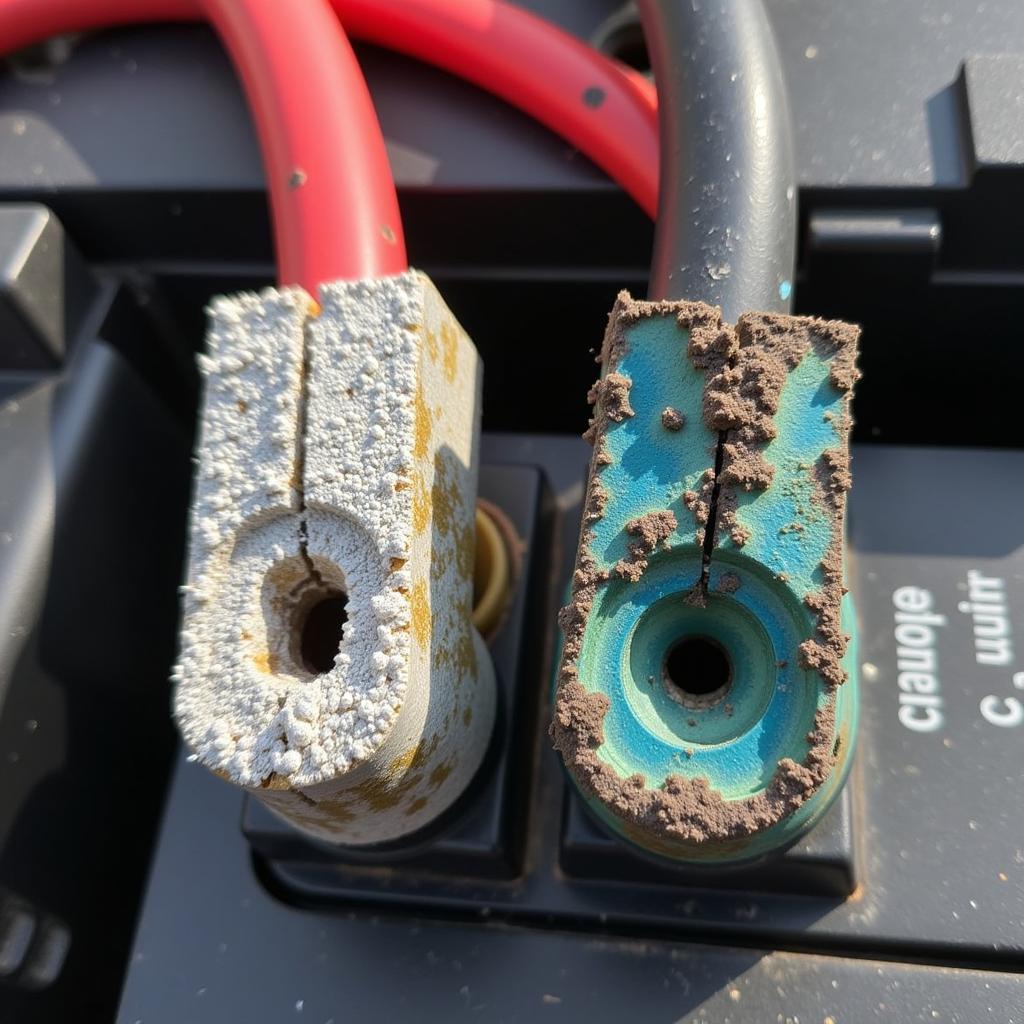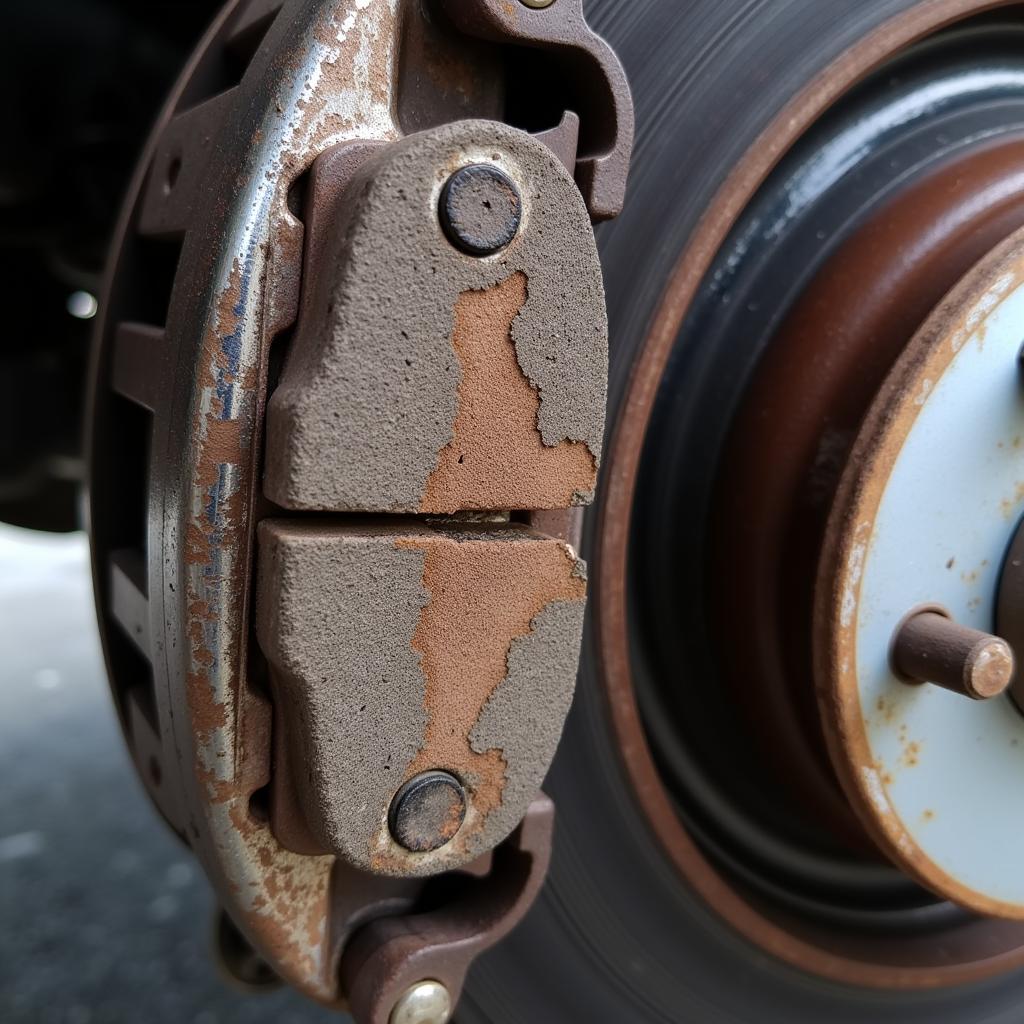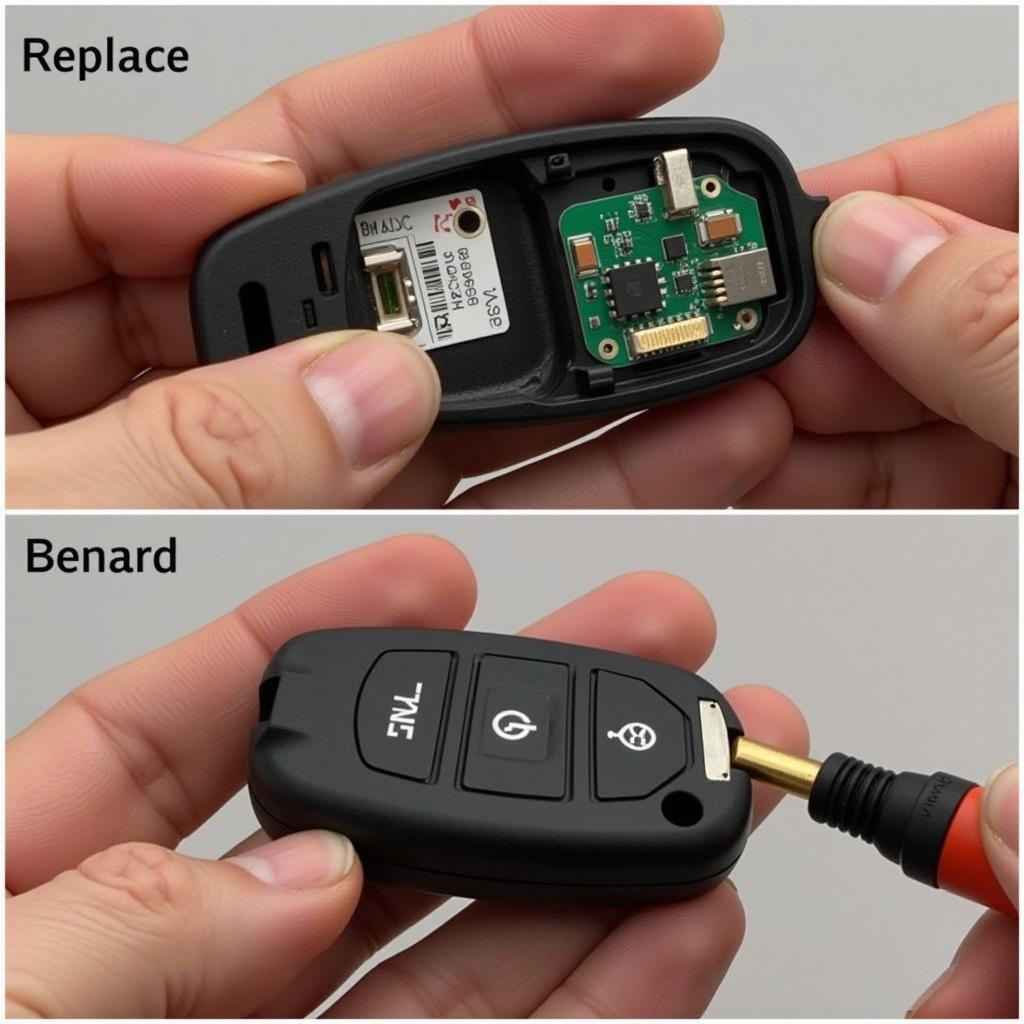You just replaced your car battery, expecting a smooth start, but your car won’t turn over. Frustrating, right? This comprehensive guide tackles the “replaced battery car won’t start” problem, offering practical solutions and expert insights to get you back on the road.
Common Reasons Why Your Car Won’t Start After a Battery Replacement
There are several reasons why a car might refuse to start even after a new battery is installed. Let’s explore the most common culprits:
Loose or Corroded Battery Terminals
A seemingly minor issue like loose or corroded battery terminals can prevent the electrical current from flowing properly. Even with a brand new battery, a poor connection can render it useless.
 Loose and Corroded Car Battery Terminals
Loose and Corroded Car Battery Terminals
Faulty Alternator
The alternator charges the battery while the engine is running. A faulty alternator can’t charge the new battery, leading to a no-start situation. You might have started with a bad battery, replaced it, but the underlying alternator issue remains.
Bad Starter Motor
The starter motor is responsible for cranking the engine. A malfunctioning starter won’t engage, even with a fully charged battery. This can often be heard as a clicking sound when you turn the key.
Blown Fuses or Relays
Fuses and relays are crucial components of the electrical system. A blown fuse or a faulty relay can interrupt the power supply to essential starting components. Check your car’s owner’s manual to locate the relevant fuses and relays.
Wiring Problems
Damaged or corroded wiring can disrupt the flow of electricity to the starter or other essential components. This can be a more complex issue to diagnose and often requires professional assistance.
Troubleshooting Steps: What to Do When Your Replaced Battery Car Won’t Start
Follow these steps to diagnose and potentially fix the issue:
-
Check the Battery Terminals: Inspect the battery terminals for corrosion or looseness. Clean the terminals with a wire brush and baking soda solution. Ensure they are tightly connected to the battery cables.
-
Test the Alternator: Use a multimeter to check the alternator’s voltage output. A healthy alternator should produce around 14 volts while the engine is running.
-
Inspect the Starter: Listen for a clicking sound when you try to start the car. This often indicates a bad starter. You can try tapping the starter motor with a hammer to see if it temporarily engages.
-
Check Fuses and Relays: Locate the fuses and relays related to the starting system and check for any blown fuses. Replace any blown fuses with ones of the same amperage.
-
Examine Wiring: Visually inspect the wiring connected to the battery, starter, and alternator for any signs of damage or corrosion.
“A common mistake people make is assuming the new battery is the problem when the car won’t start. Often, it’s something else entirely, like a loose connection or a faulty alternator,” says John Miller, Senior Automotive Electrical Technician at Miller’s Auto Repair.
When to Seek Professional Help
If you’ve tried the above steps and your car still won’t start, it’s time to seek professional help. A qualified automotive technician has the tools and expertise to diagnose and repair more complex electrical problems.
“Don’t hesitate to seek professional help if you’re not comfortable working on your car’s electrical system. It’s better to be safe than sorry,” advises Emily Carter, Lead Automotive Engineer at Carter Automotive Solutions.
Conclusion
A replaced battery car that won’t start can be a frustrating experience. However, by understanding the common causes and following the troubleshooting steps outlined above, you can often pinpoint the problem and get your car running again. If the issue persists, remember to consult a qualified automotive technician.
FAQ: Replaced Battery Car Won’t Start
-
Q: Could a brand new battery be faulty?
A: Yes, although rare, a new battery can be defective. -
Q: How long should a car battery last?
A: Typically, car batteries last between 3 and 5 years. -
Q: What are the signs of a bad alternator?
A: Dim headlights, flickering dashboard lights, and a whining noise from the engine are common signs of a bad alternator. -
Q: How do I jump-start a car with a dead battery?
A: Connect the positive cable to the positive terminal of the dead battery, then to the positive terminal of the good battery. Connect the negative cable to the negative terminal of the good battery, then to a metal ground on the dead car. -
Q: Can I drive with a bad alternator?
A: You can drive for a short distance, but eventually, the battery will drain and the car will stall. -
Q: What causes a car starter to go bad?
A: Wear and tear, electrical shorts, and excessive heat are common causes of starter failure. -
Q: How much does it cost to replace a car starter?
A: The cost varies depending on the make and model of the car, but typically ranges from $200 to $500.



